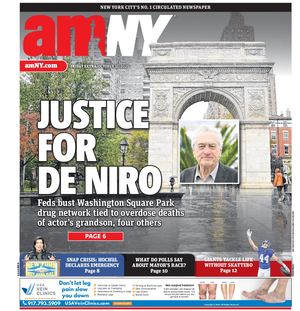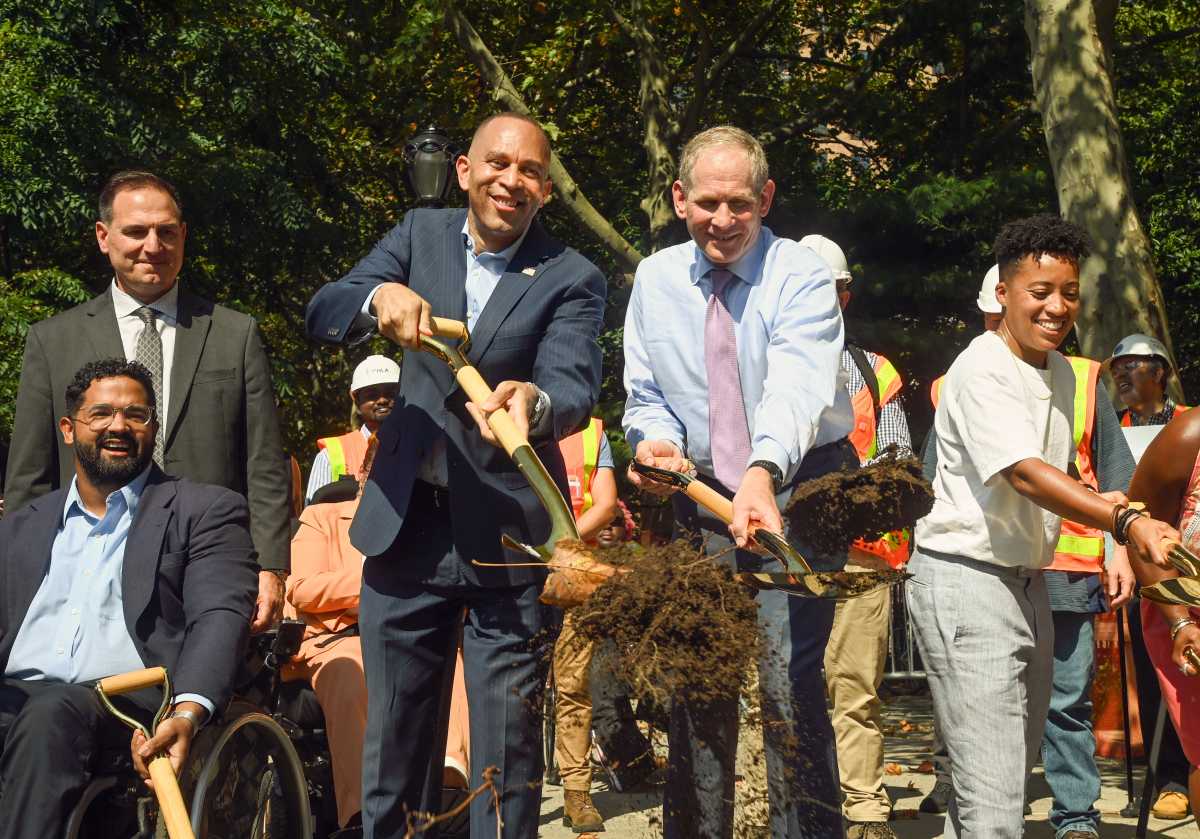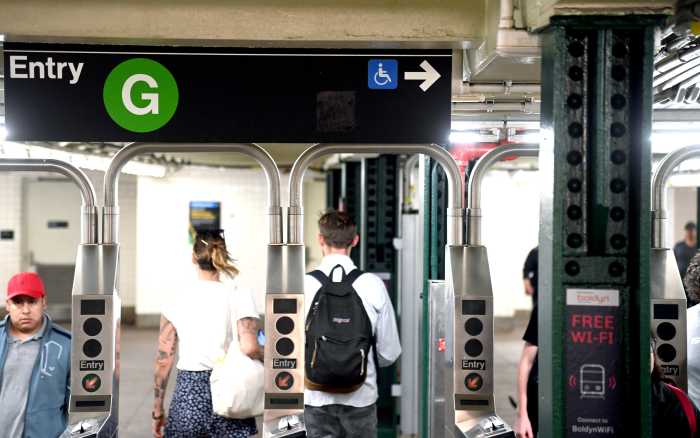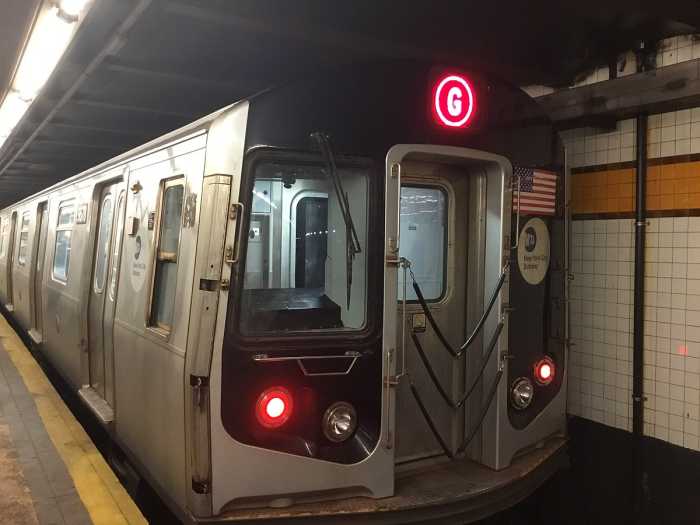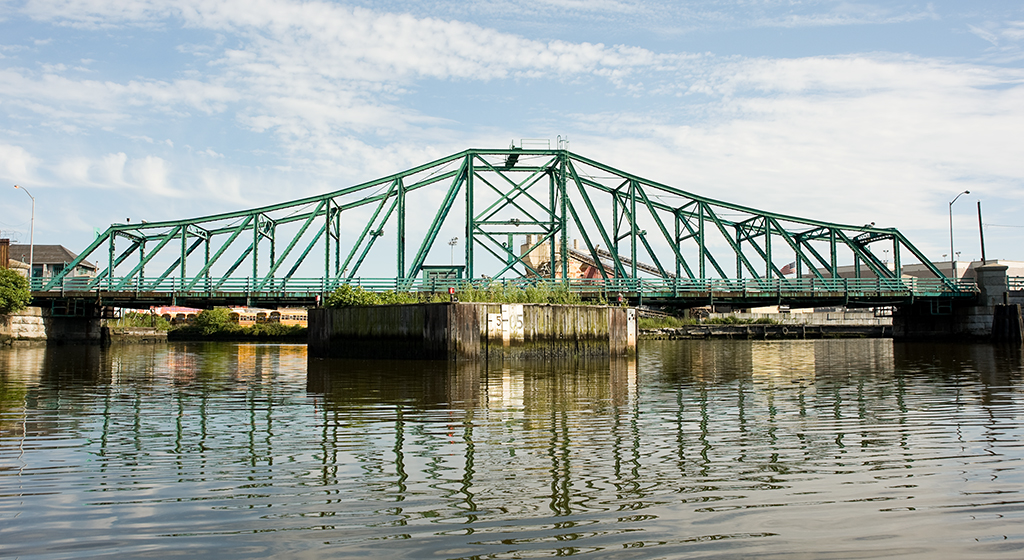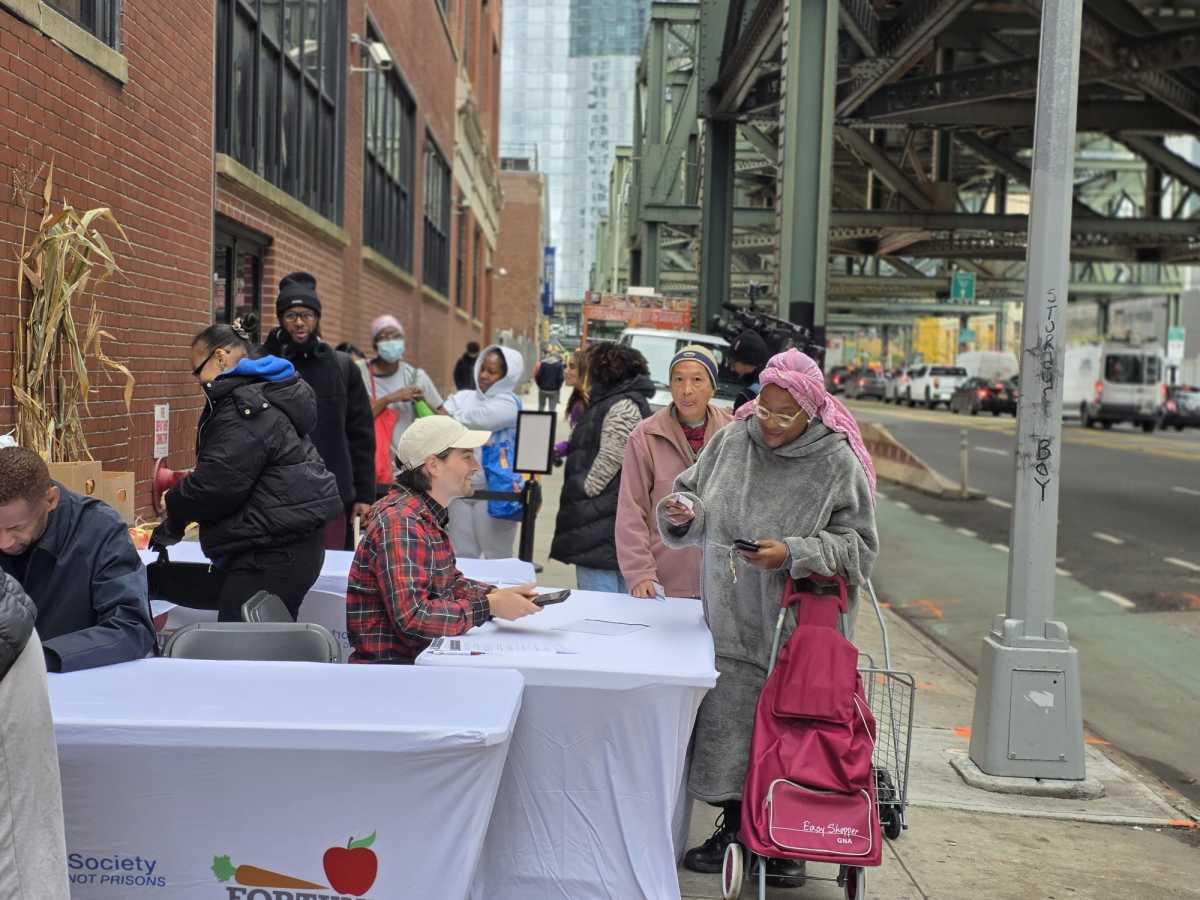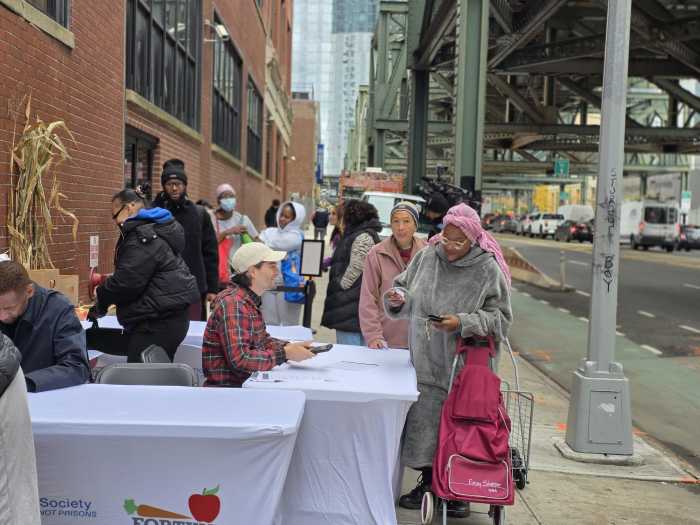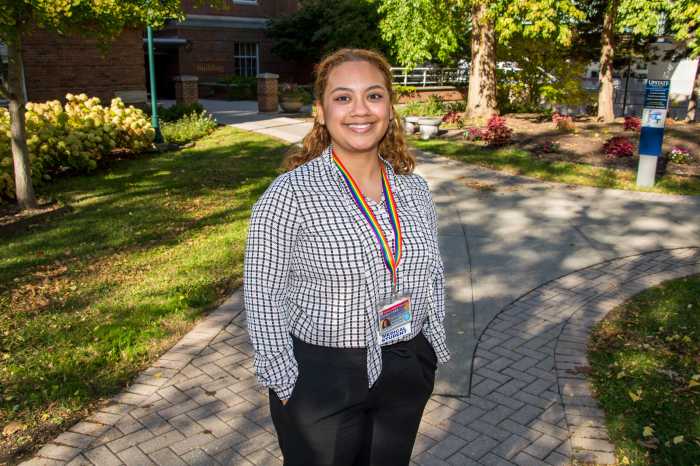House Minority Leader and Brooklyn Congressman Hakeem Jeffries was back in his home district Monday morning to help ceremonially break ground on a federally-funded accessibility project on the G line.
Jeffries joined MTA Chair and CEO Janno Lieber on Aug. 5 for a ceremony marking the start of accessibility upgrades at the Classon Avenue station in Clinton Hill. It is one of 13 stations that will be fully renovated and made ADA-accessible through an $850 million program, of which nearly $500 million is covered through federal funding — including $360 million from the Bipartisan Infrastructure Act.
The accessibility improvements at Classon Avenue include enhanced passenger circulation, two new mezzanine-to-platform stairwells, and the creation of 3,500 square feet of new public mezzanine space.
“The G train is an incredibly important subway line for the Clinton Hill, Fort Greene, and Bedford-Stuyvesant communities that I am privileged to represent. Today represents an incredibly positive step forward, particularly to make sure that those with physical challenges and those who have slowed down a little bit as they’ve become older can move back and forth and do the things necessary to live their best life.
The Classon Avenue project is part of what the MTA calls its largest “design-build bundle of accessibility upgrades to date.”
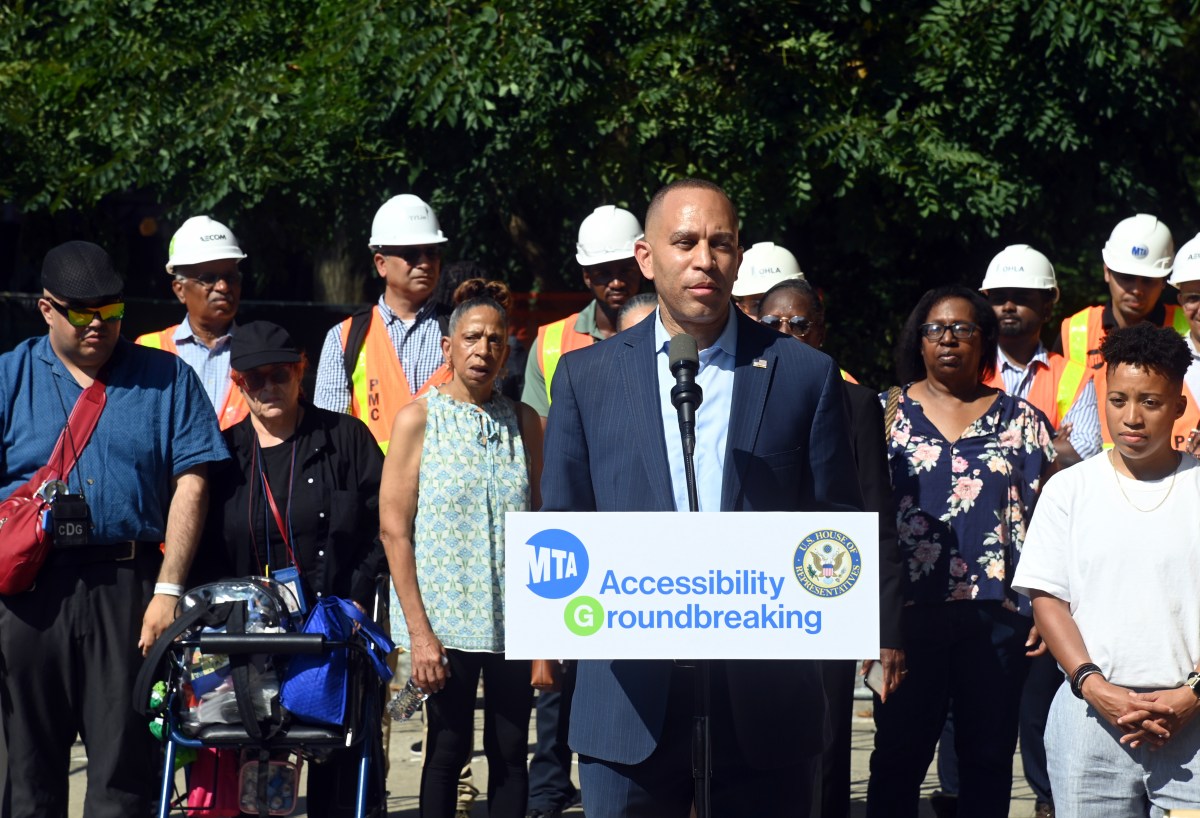
“In recent years, the MTA has been making dramatic gains toward full system accessibility,” said MTA Chair and CEO Janno Lieber. “Investments in transit accessibility benefit all New Yorkers – seniors, shoppers, stroller-pushing parents, and people with disabilities – and we are deeply grateful to federal leaders like Senator Schumer and House Democratic Leader Jeffries for assuring the MTA captures its share of Bipartisan Infrastructure Law funds to continue that unprecedented progress.”
Just 30% of New York’s 472 subway stops are accessible today, lagging well behind other US and global cities three decades after the Americans with Disabilities Act. The MTA is under a federal court mandate to make 95% of stations accessible by 2055, 31 years from now.
Further improvements toward accessibility within the subway system are in jeopardy after Gov. Kathy Hochul put the congestion pricing plan on pause back in June. Part of the billion dollars in daily revenue from the Manhattan tolls were to have been used to fund accessibility upgrades at 39 other stations in the 2020-24 MTA Five-Year Capital Plan.
The MTA is reworking its capital plan to prioritize essential items to keep its subways, buses and commuter trains operational. Hochul has pledged to provide an alternative funding source, though no new progress has been made.
As for Classon Avenue, MTA New York City Transit President Demetrius Crichlow said the accessibility improvements will be complemented by the signal modernization work currently underway for the G line to deliver a more reliable ride for customers.”
“The G line has historically had fewer accessible stations than other lines, but progress is surely underway,” he noted.
Read More: https://www.amny.com/new-york/brooklyn/
